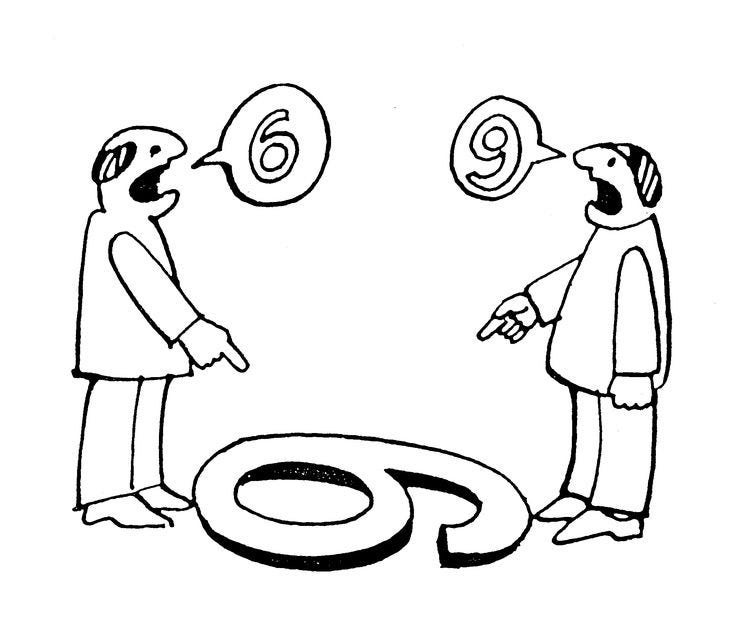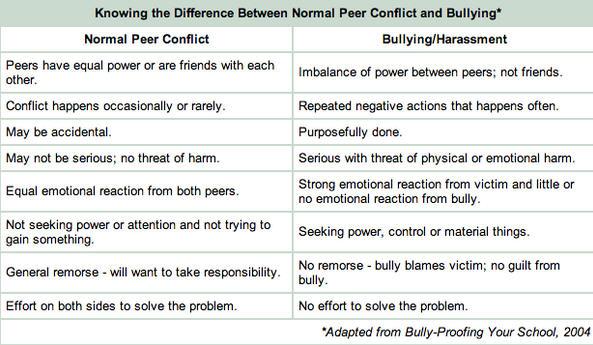
As an administrator preventing and resolving conflict is an everyday task. One important myth to dispel particularly with primary and junior students is the notion that "conflict" is bullying. There is a very clear distinction between the two that is often misunderstood by students.

There are three common responses to conflict:
- Avoidance - taking a break to cool off can be a good response especially when emotions are heated however avoiding the conflict forever hoping it will go away is not productive.
- Confrontation - acting on the belief that one side is right. A win-lose situation.
- Acquiescence - giving into the other side.

Special Education and Conflict
Conflict can occur in special education at the planning stage, throughout the implementation of a student's program or as a result of a poor relationship between parties ie. parent and teacher, teacher and student, teacher and administrator etc.
When conflict arises it is important that the parent speak to the Teacher or Special Education first before moving on to the Principal/Vice Principal.
At any level (Teacher, Principal, SO) successful conflict resolution begins with both parties have a clear understanding of the problem.
Using the key strategies of active listening (explore, restate, clarify and summarize) will help parties understand the issues at the heart of the conflict. I'm going to post this in my office in September!
 Shared Solutions p.29
Shared Solutions p.29
Conflict Resolution can only occur when emotions can be put to the side in order to come to a solution in the best interest of the student.
Principals of Conflict Resolution:
1. Clear understanding of issues or concerns
2. Student focused
3. Mutual Respect and Respect for Diversity
4. Accessibility
5. Balance of Power
6. Fairness
7. Transparency
Here is a list of strategies that can prevent conflict from occurring or help in the resolution stage:
- Positive School Community
- Effective Communication
- Take notes at meetings and share with all parties ensure their is a section for follow-up with who is assigned to each task and a date for when the task will be completed
- Book a follow-up meeting before ending a parent meeting
- Believing that a solution can be found in the best interest of the student
- Accepting that there is more than one way to solve a problem
Here is another quick tip sheet that could hang in my office:
For more information on conflict and effective strategies check out Shared Solutions:


No comments:
Post a Comment
Note: only a member of this blog may post a comment.